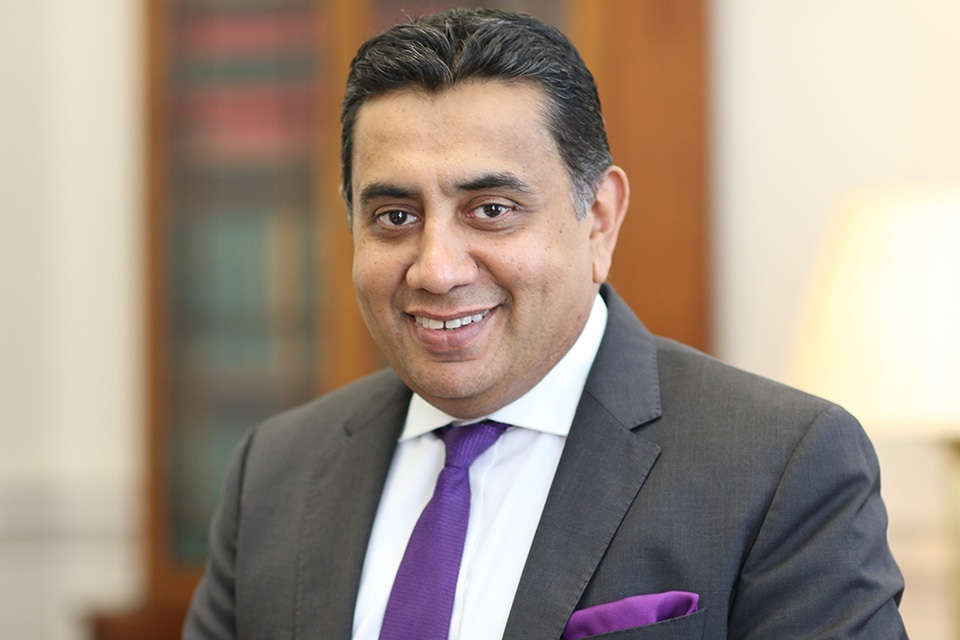40th Universal Periodic Review of human rights: UK closing statement
Lord Ahmad of Wimbledon welcomes conclusions of the 40th Universal Periodic Review.

The Universal Periodic Review (UPR) is a unique peer review mechanism of the United Nations Human Rights Council that scrutinises the human rights record of every UN Member State once every 5 years. This session, the last of the current UPR cycle, reviewed 12 States: Togo, Syria, Iceland, Venezuela, Zimbabwe, Lithuania, Uganda, Timor-Leste, Moldova, South Sudan, Haiti and Sudan.
Modern slavery and human trafficking
As the world emerges from the Covid-19 pandemic, it brings with it 160 million children in child labour: an increase of over 8 million in the last four years. This is a clear demonstration of why we, and our partners around the world, must continue doing all we can to eradicate the heinous crimes of modern slavery as agreed through Sustainable Development Goal 8.7, by taking immediate and effective measures to eradicate forced labour, end modern slavery and human trafficking, and secure the prohibition and elimination of the worst forms of child labour.
In this final session of the third cycle we have encouraged implementation of National Action Plans including improving protection for victims; establishing and implementing guidelines for first responders; criminalising child, early and forced marriages; and increasing training for police, prosecutors and judges to identify and prosecute modern slavery abuses.
Treaty monitoring bodies
This session we continued to advocate strengthening the quality, independence and diversity of Treaty Body membership. These expert bodies are a central part of the UN human rights system, charged with monitoring the implementation of human rights conventions in states which have signed up to them.
Syria
I remain appalled by the Assad government’s treatment of its people. Women and girls suffer disproportionately, caught between the conflict, the ensuing economic crisis, and sexual and gender-based violence. I strongly condemn the regime’s attacks on civilians and infrastructure and I call on Syria to: immediately end the systemic practice of enforced disappearance, arbitrary arrests, detention and torture; end all attacks on civilians and facilitate unconstrained access for humanitarian actors and independent international human rights monitors; and prohibit and criminalise the use and recruitment of child soldiers in armed conflict.
Venezuela
I welcome the arrival of the OHCHR and other UN actors in Venezuela. I am deeply concerned by their reports including on the use of the justice system to undermine democracy and urge Venezuela to allow unhindered humanitarian access. I recommend Venezuela: take urgent steps to end forced labour, sexual exploitation and human trafficking in the Arco Minero del Orinoco; ensure sexual and reproductive health and rights for all; and respect political parties’ independence, lift arbitrary disqualifications of dissident leaders and cease to override Venezuelans’ will through court decisions.
Zimbabwe
In Zimbabwe, I acknowledge the repeal of the Access to Information and Protection of Privacy Act and welcome the launch of Zimbabwe’s national disability policy. However, I am concerned by restrictions on freedom of assembly, the harassment of journalists, opposition and civil society, and constitutional amendments which risk reducing judicial independence. I call on Zimbabwe to increase access to basic documentation, tackle gender-based violence and hold accountable those individuals responsible for human rights violations. I recommend that Zimbabwe fully implement the Motlanthe Commission of Inquiry Report and 2018 Election Observer Report recommendations, and align the Marriages Act with the constitution to criminalise child, early and forced marriage.
South Sudan
While I welcome the progress that has been made by South Sudan since 2015, including through the 2018 Revitalised Peace Agreement, the human rights situation on the ground remains deeply worrying. Violations and abuses, including sexual violence, arbitrary detentions, extrajudicial killings, and attacks on freedom of expression continue with apparent impunity. Civilians, civil society and humanitarian workers, including journalists, must be protected. Violations against children, including their recruitment as child soldiers, must end. We hope to see continued cooperation with the Commission on Human Rights in South Sudan, with the support of both the international community and South Sudan, to allow it to continue its vital work.
Sudan
The UK has consistently and strongly condemned the 25 October 2021 military coup in Sudan, as well as the subsequent arbitrary arrest and detention of civilians, and violence against protestors. I do so once again. The Sudanese military must fully respect and protect all human rights and to deliver justice and accountability for all human rights violations and abuses. Civic space must be immediately reopened and fully protected. The rights to freedom of expression and assembly of all people in Sudan, including civil society actors, human rights defenders and journalists, must be defended. And the UN-facilitated process that seeks to lead to the restoration of Sudan’s civilian-led government, must be engaged with fully and in good faith by all parties.
End of the Third Cycle of the Universal Periodic Review
As a strong supporter of the UPR mechanism, I am proud that the UK has participated actively in every State review since the beginning of the first cycle, delivering a clear statement on how we see the human rights situation in every State under review, without fear or favour.
During the third cycle of the UPR, I am proud that the UK proposed a total of more than 500 recommendations, and sent more than 600 advance questions to States. I note that the UK is one of a few States that routinely sends advance questions, and we hope others will note the value of this practice, and take a similar approach in future.
With the end of the third cycle, the UK looks forward to continuing its active participation in the UPR process. We will be one of the first States to come under Review at the beginning of the fourth cycle, and we will approach our Review in the same spirit we would wish all States to exemplify